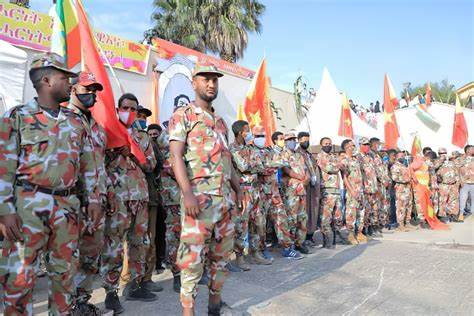Ethiopia and Tigray Liberation Front hit second milestone after writing pact to end hostilities
The Government of Ethiopia and the Tigray People’s Liberation Front mark the second anniversary after they officially signed the Cessation of Hostilities Agreement.
The two parties inked the pact on November 2, 2022, in Pretoria, South Africa.
The Cessation of Hostilities Agreement (COHA), is a truce for ending a devastating two-year war in the Eastern Africa country.
To realize that the United States of America (USA) worked with the African Union (AU), the Intergovernmental Authority on Development (IGAD) and the United Nations (UN) to lay the groundwork for peace.
During the second anniversary of the COHA’s signing, the parties involved reflect on the war’s tremendous human toll, remember the victims, and honor Ethiopian citizens working to build a more peaceful future.
“The United States welcomes important progress made on implementation of the COHA,” says the U.S Secretary of State, Anthony Blinken.
“Most importantly, the guns in Tigray remain silent. Internally displaced persons have returned to their homes and basic services have been restored. The scheduled start of the Disarmament, Demobilization, and Reintegration campaign this month is a critical step to consolidating the peace,” a dispatch from the U.S Secretary of State reads.
“We also welcome the April 2024 publication of Ethiopia’s Transitional Justice Policy and the completion of the Transitional Justice Implementation Roadmap as important building blocks to achieving accountability and reconciliation.”

According to Blinken however, much work remains to fulfill the commitments and promise of the Cessation of Hostilities Agreement.
“We call on the Government of Ethiopia to accelerate actions to facilitate the voluntary return of all people displaced by the conflict, arrange the full withdrawal of non-Ethiopian National Defense Forces from Tigray, and demonstrate an ongoing commitment to victim-centric transitional justice and a credible and inclusive National Dialogue.”
These steps are necessary to ensure the COHA signatures lead to a durable peace.
On the other hand, the United States calls on all parties to end the violence in other parts of the country, especially Amhara and Oromia, and to resolve disputes at the negotiating table.

